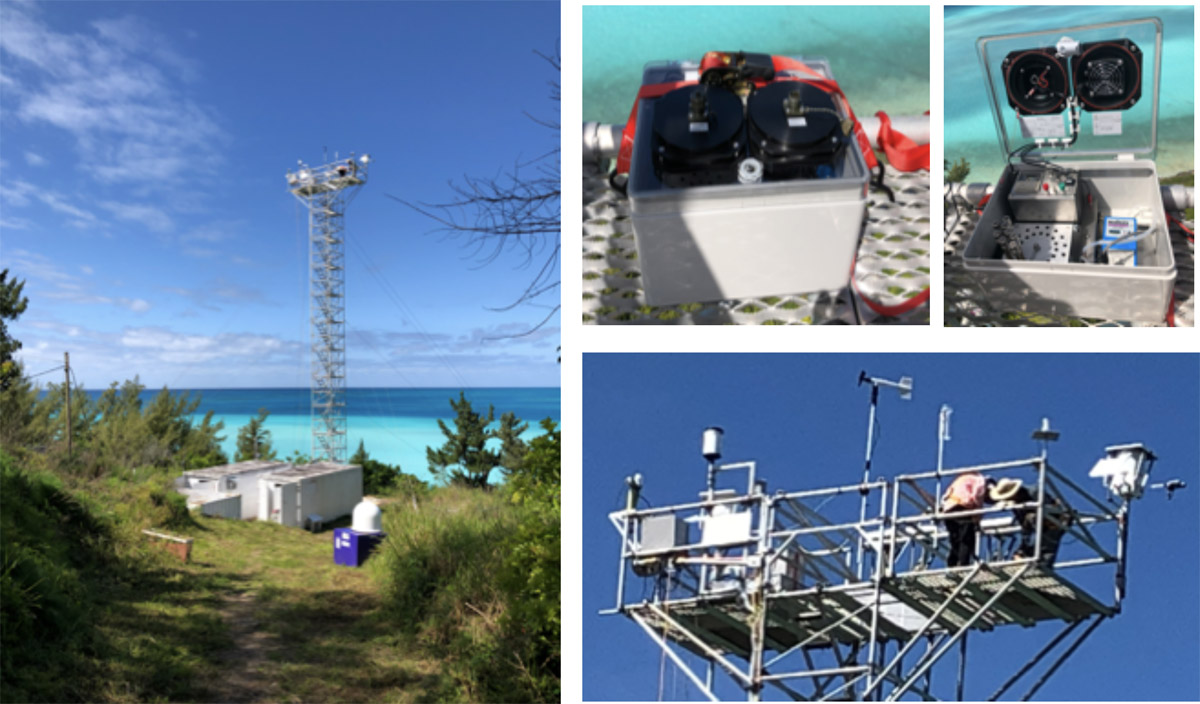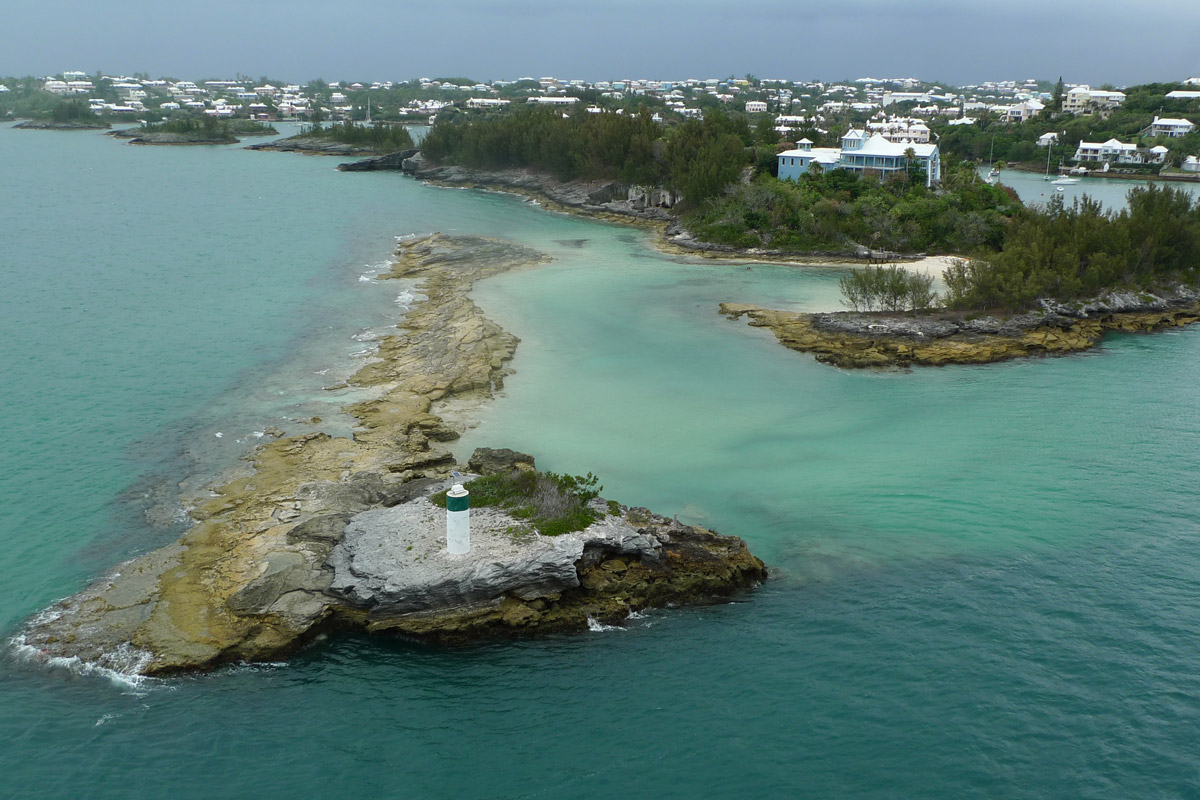The Atmospheric Chemistry and Climate Laboratory (ACCL) lead by USF Professor of Atmospheric Chemistry and Climate, Dr. Yasin Elshorbany is currently engaged in several interdisciplinary projects funded by the National Science Foundation (NSF) and the Pandemic Response Research Network (PRRN).
The NSF project has a total budget of about $1 million focuses on investigating the nitrous acid (HONO) formation mechanism and atmospheric oxidizing capacity in the marine boundary layer in Bermuda and their climate impacts.
“Nitrous acid is a major source of OH radicals, the main oxidizing species in the atmosphere,” said Dr. Elshorbany. “We believe that HONO can be formed from the photolysis of nitrates on sea salt aerosol particles in the marine boundary layer, which makes 70% of the earth’s surface.”

While this study is a collaboration with the University of New York at Albany, USF’s role in the project includes measurements and analysis of volatile organic compounds (VOCs) in the atmosphere and multi-scale modeling of the atmospheric oxidation capacity using the new proposed HONO re-noxification mechanism.
This reaction mechanism, when verified, will have significant consequences regarding the global atmospheric oxidation capacity and the lifetime of greenhouse gasses in the atmosphere.
“We expect the results of this research to be available in 2021”, says Dr. Elshorbany.
After some delay caused by the ACCL’s focus on addressing COVID-19 related impacts on air quality that Dr. Elshorbany is currently leading, the research team will work on analyzing the Bermuda field measurement data and the model simulations.
Other work being conducted in the ACCL:
- Dr. Elshorbany has also been recently awarded a grant to investigate the relationships
between air quality, health outcomes, and socioeconomic impacts of the COVID-19 pandemic
in Florida from the USF COVID-19 Rapid Response Research Grants. The interdisciplinary
team includes climate scientists, social scientists and community partners. The completion
and results of this research are set to be available by mid-2021.
- In addition to helping with the current projects, undergraduate students in the ACCL
will be also investigating the spread of COVID-19 virus in high aerosol spots in the
U.S. using remote sensing measurements and data from the John Hopkins University.
- Dr. Elshorbany is the editor of the Journal of Remote Sensing’s special issue on “The Future of Air Quality Monitoring by Remote Sensing".
- Dr. Elshorbany is also leading the Ozone Precursors working group within the Tropospheric
Ozone Assessment Report (TOAR-II).
- Dr. Elshorbany regularly organizes several sessions at the annual American Geophysical Union meeting since several years.
